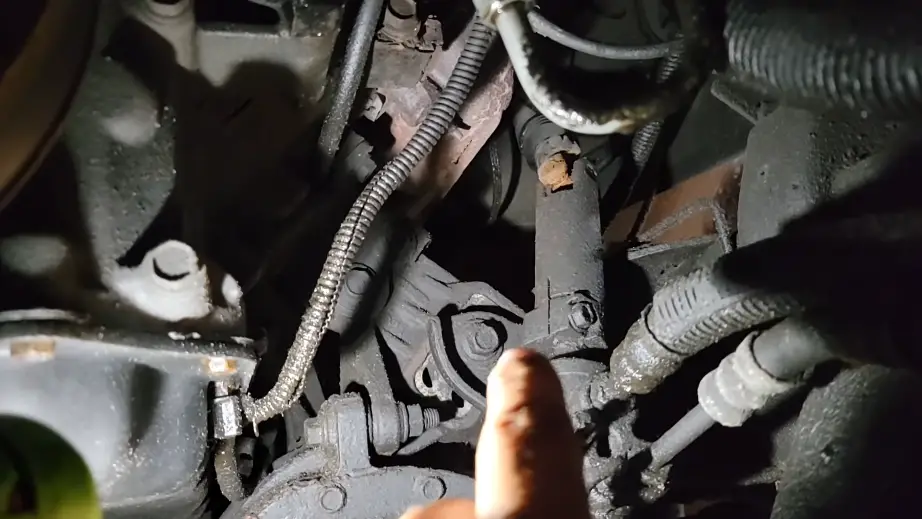Yes, an exhaust manifold leak can hurt the engine over time. It can reduce engine performance, cause overheating, and potentially damage exhaust valves and oxygen sensors, leading to misfires and incorrect air-fuel mixture adjustments. If left unchecked, the leak can also harm the catalytic converter and expose occupants to dangerous carbon monoxide fumes.
When it comes to vehicle maintenance, the exhaust manifold might not always be the first thing on a driver’s mind, but it plays a critical role in the overall functioning of your engine. An exhaust manifold leak can seem like a minor problem, but it has the potential to cause significant damage to your engine over time.
Contents
Can Exhaust Manifold Leak Hurt Engine?
While an exhaust manifold leak might start as a minor issue, it can lead to several engine-related problems if not addressed promptly. Below are the main ways an exhaust manifold leak can hurt your engine:
1. Reduced Engine Performance
One of the immediate effects of an exhaust manifold leak is a reduction in engine performance. The leak allows unburned gases to escape before they pass through the catalytic converter, which can result in a loss of power and efficiency. This happens because the engine control unit (ECU) detects an imbalance in the air-fuel mixture due to the oxygen-rich exhaust leak and adjusts the engine’s performance to compensate.
Symptoms like decreased acceleration, poor fuel economy, and sluggish engine response are common when the manifold leak affects engine performance.
2. Engine Overheating
An exhaust manifold leak can disrupt the engine’s cooling system. The hot gases escaping from the manifold can raise the temperature under the hood, increasing the risk of overheating. If the engine overheats, it can lead to serious mechanical damage, such as warped cylinder heads, damaged pistons, and a blown head gasket.
Engine overheating is one of the most dangerous potential consequences of an exhaust manifold leak and can result in costly repairs if not addressed in time.
3. Damaged Exhaust Valves
Exhaust manifold leaks can cause exhaust valves to become overheated. The valves, located in the engine’s cylinder head, are responsible for releasing exhaust gases from the combustion chamber. When there’s a leak, hot gases escape prematurely, which can result in the valves being exposed to higher-than-normal temperatures.
This excess heat can cause the exhaust valves to warp, burn, or crack. Damaged exhaust valves can lead to poor engine compression, misfires, and a significant loss in engine power, ultimately harming the engine’s longevity.
4. Harm to Oxygen Sensors and Catalytic Converter
An exhaust manifold leak can disrupt the oxygen sensors’ ability to measure the air-fuel ratio accurately. These sensors rely on a consistent flow of exhaust gases to relay information to the ECU, which then adjusts the engine’s air-fuel mixture. A leak allows excess oxygen into the exhaust stream, leading to incorrect readings.
When the ECU receives these incorrect readings, it may compensate by adding too much fuel, causing the engine to run rich. Over time, this rich condition can damage the catalytic converter, an expensive component of the exhaust system that helps reduce harmful emissions. A damaged catalytic converter not only hurts the environment but also reduces engine efficiency and performance.
5. Increased Risk of Carbon Monoxide Exposure
One of the most dangerous risks of an exhaust manifold leak is the possibility of carbon monoxide (CO) entering the cabin of the vehicle. Exhaust gases, including CO, can seep through the firewall and into the passenger compartment. Carbon monoxide is odorless and colorless but can be fatal in high concentrations. Prolonged exposure to low levels of carbon monoxide can cause symptoms like headaches, dizziness, nausea, and fatigue.
In this regard, an exhaust manifold leak can pose a severe safety hazard to both the vehicle’s occupants and the engine itself. If you suspect an exhaust leak, it’s crucial to address it immediately to avoid any health risks.

Frequently Asked Questions
Here are some FAQs about exhaust manifold leak –
Can I drive with an exhaust manifold leak?
It’s not recommended to drive with an exhaust manifold leak, as it can lead to engine damage and potentially expose you to carbon monoxide.
How much does it cost to fix an exhaust manifold leak?
Repair costs vary depending on the severity of the leak, but on average, replacing an exhaust manifold gasket can range from $150 to $300, while replacing the manifold itself can cost upwards of $500 to $1,000.
How long does it take to repair an exhaust manifold leak?
Most exhaust manifold repairs take between 2 to 4 hours, depending on the complexity and accessibility of the manifold.
Can an exhaust manifold leak cause a misfire?
Yes, if the leak affects the oxygen sensor readings and alters the air-fuel mixture, it can result in engine misfires.
How can I prevent an exhaust manifold leak?
Regular maintenance, including inspecting the exhaust system for rust and loose bolts, can help prevent manifold leaks. Applying protective coatings can also reduce the risk of corrosion.
Conclusion
An exhaust manifold leak can indeed hurt your engine. Left unchecked, it can lead to reduced performance, engine overheating, damage to exhaust valves, and even the risk of carbon monoxide poisoning. Fixing the leak promptly is essential to ensure the engine remains in good health and to prevent expensive repairs down the line.